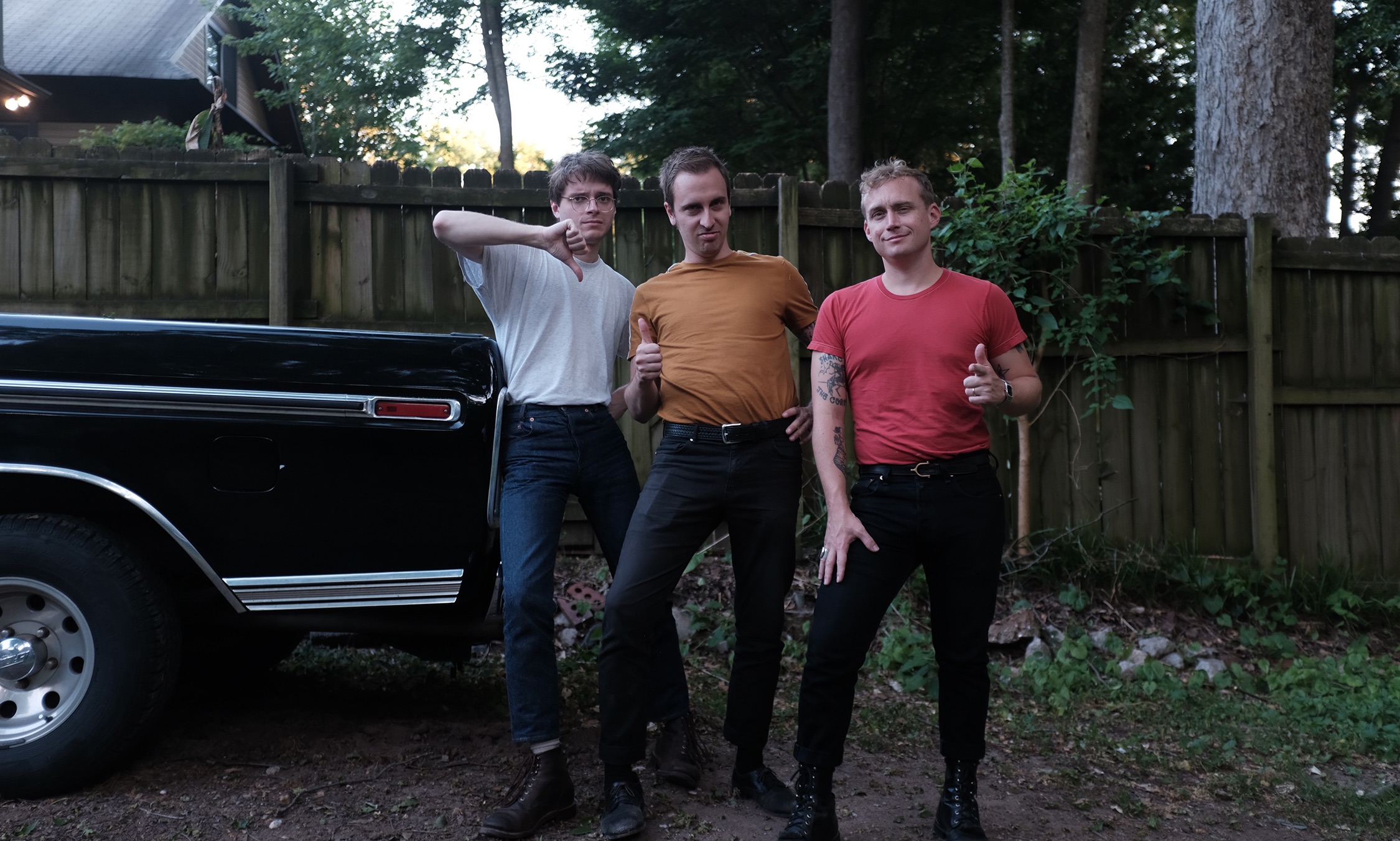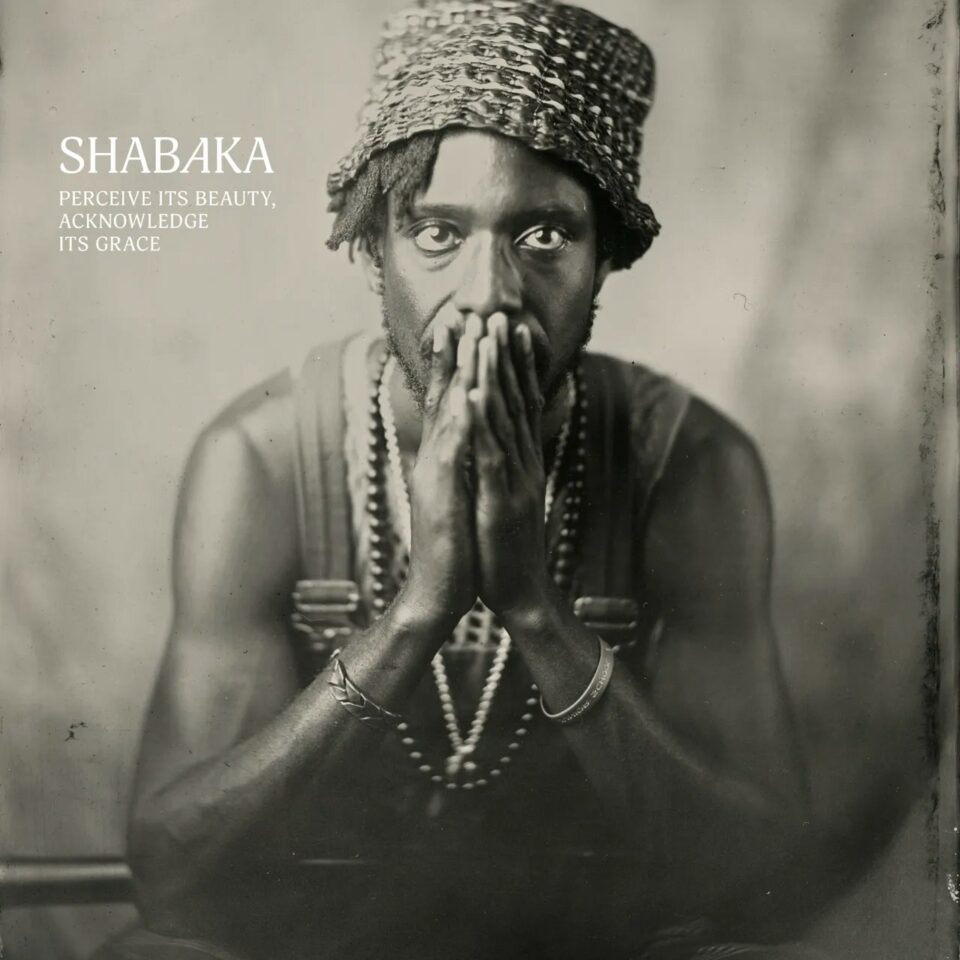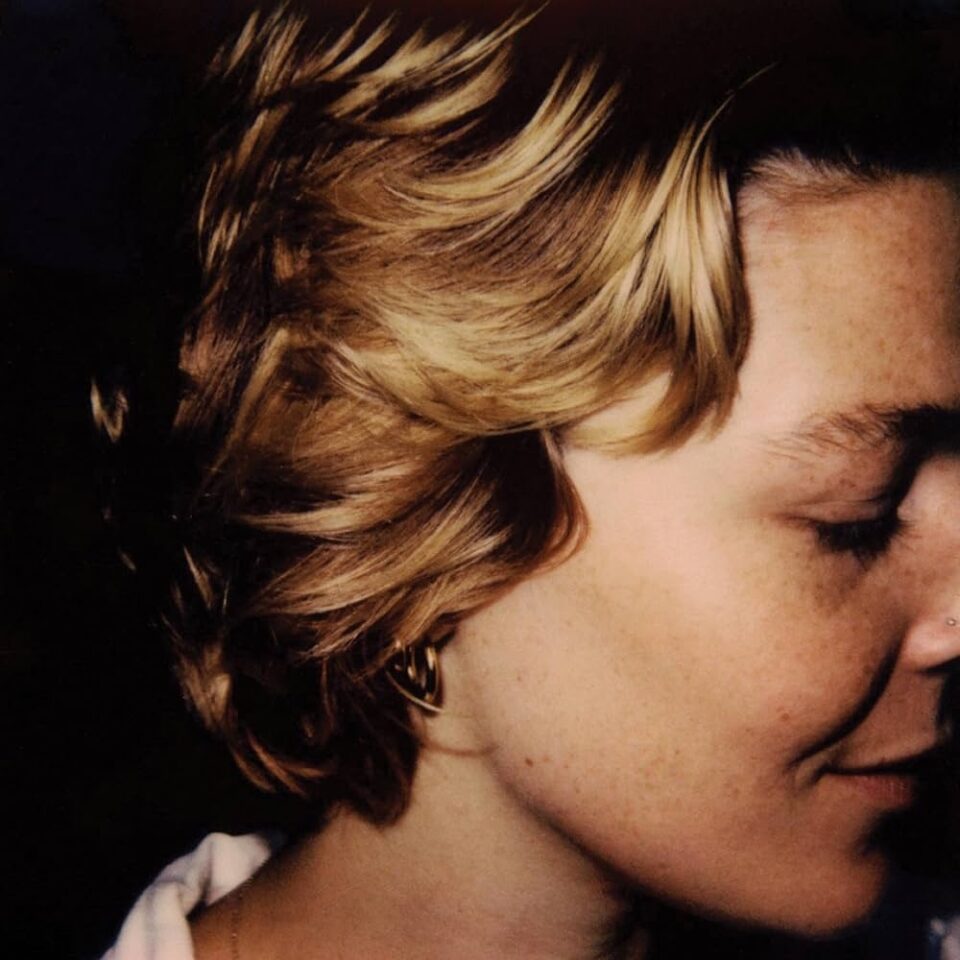On “Equestrian,” the second track off Omni’s 2017 sophomore album Multi-task, the Atlanta-based duo of Frankie Broyles and Philip Frobos painted an everyday fantasy of spending money they didn’t have. By comparison, the second track off Networker, Omni’s upcoming Multi-task follow-up and Sub Pop debut, includes much more morbid images, such as students lighting their teacher on fire. That track, “Courtesy Call,” the video for which we’re premiering today, can be chalked up to the times.
“It’s about violence these days,” says Frobos. “Obviously, we’ve lived in a violent world for a long time, but it’s about the normality of hearing about really terrible shit and being unsurprised and unphased now more than ever.” Broyles puts it more succinctly: “The reason why the person is not getting a courtesy call is that they’re dead,” he says with a light chuckle.
“Courtesy Call” exemplifies the highs Omni achieves when Networker, a minimal post-punk album with guitars that trot rather than chug, tackles modern malaise with equal amounts dread and semi-subtle levity. Like “Courtesy Call,” succeeding tracks “Present Tense” and “Skeleton Key” comment on digital-age communication; the songs’ shared concern with social media and messaging apps unites the former’s keyboard-assisted guitar double-kicks with the latter’s suit-and-tie CBGB gallop.
The album is named after the starlit, ’60s-esque ballad “Networker,” on which Frobos’ voice is at its lightest and softest-spoken. The song’s title might suggest an overactive social media user, but the story goes beyond the screen: Broyles says the track is about “the experience of being in the music industry and how everybody is constantly networking.” Frobos adds that this notion is “a good theme for the overall vibe of the rest of the record too, not only in our little music world,” but for “all our friends trying to hustle their new nine-to-five lives and whatever else they’re trying to do”—this coming from a band that literally named an album Multi-task. Regardless of the clutter, Omni is moving forward full speed ahead.
Networker is out November 1 on Sub Pop. You can pre-order it here. Catch them on tour at the dates listed here.
How did you come up with the “Courtesy Call” video?
Frankie Broyles: Our friend found these old broadcast cameras in the basement of an old church. We set them up at a venue and did an old Top of the Pops kind of green-screen video.
That sounds retro, and “retro” is a word that listeners and critics often use to describe your music. How intentionally does the video play into that?
FB: It was born out of a lack of time and trying to think of the quickest thing to do. We came up with the idea of a live video mix so the cuts and edits could be done in real-time, cutting down the editing time. It’s an aesthetic that has always appealed to us.
Philip Frobos: We always wanted to do a Top of the Pops–style video.
In what ways does the video relate to the themes of “Courtesy Call”?
FB: Mainly, it’s a performance video. It doesn’t have too much to do with the lyrics… It fits in with our visual style and image. It’s an extension into video.
How did “Courtesy Call” first come together?
PF: The song took a lot of turns when we were writing it. It’s probably the most demoed song we’ve had. There were three or four different versions of it until we ended up with the final thing. Some of the lyrical stuff, I would work in one idea and shift to another, and then ultimately, I tried to land on something cohesive.
Hearing the lyrics, you’re describing some pretty horrific things, but there’s not a lot of shock to your descriptions, so it’s also hard for listeners to be shocked by the descriptions. That’s a good way of rendering this constant violence as the new normal.
PF: That’s it. The part of the chorus that’s talking about the funny routine and all that is the new normal.
With talking about the new normal, there are a couple of Networker songs that are pretty obviously about social media and the digital age. Why did this interest you?
PF: Some of it is just the inevitability of having this and being forced to interact with it because we’re alive right now. It’s like co-existing with a burden. “Present Tense,” for instance, is about, when we’re in Europe, trying to communicate with my wife across time zones and how, even though we have this super easy technology, it’s still super difficult in different and new ways that we may not have known. As far as “Networker” goes, social media opens you up to everybody. There’s a vulnerability to all of us now that we didn’t have before.
FB: [Social media] is inevitably gonna seep in there somehow. It’s inescapable, more so than us making a decision that we want to talk about it.
Where do you two stand on social media?
FB: I hate social media [laughs].
PF: Aside from the band, I’m basically not on it.
You mentioned that “Present Tense” is about how when you’re touring in Europe, the difference in time zones and the methods we have for communication these days present unique challenges to your marriage and friendships. How else does that come up on Networker?
PF: Networker is the first record we wrote after the initial “ready, set, go” of our first two records. We were able to write those two back-to-back whereas, for this one, we were still doing a lot of touring, getting used to our new lifestyle of being on the go all the time, and still trying to keep up with our regular daily friendships. Writing it through that process bled into some of the lyrics.
How intentional were the sonic and production changes you made while recording Networker?
FB: It was very intentional. We talked about it early on before we started recording. We knew we wanted to up the fidelity a little bit. We definitely wanted it to sound warmer and a little more organic and less harsh. The songs we were writing lent themselves to that sound anyway.
The gap between Multi-Task and Networker allowed us to spend more time writing songs whereas, for the first two records, we were just working non-stop. I think it’s a cool development from the last one. FL









